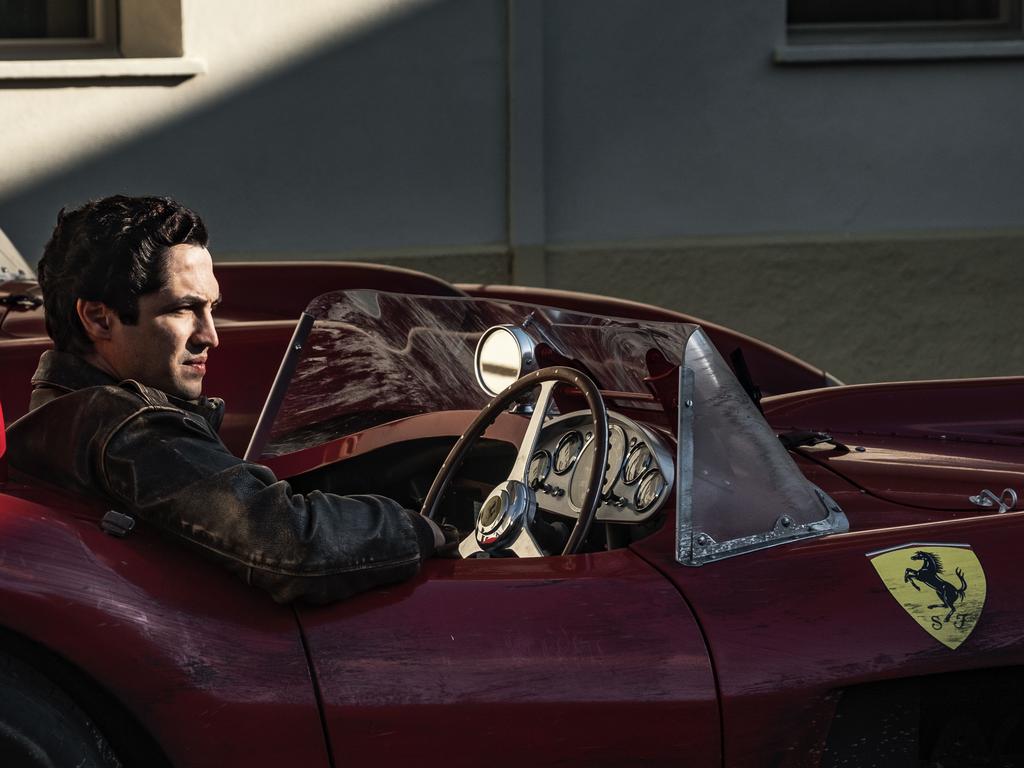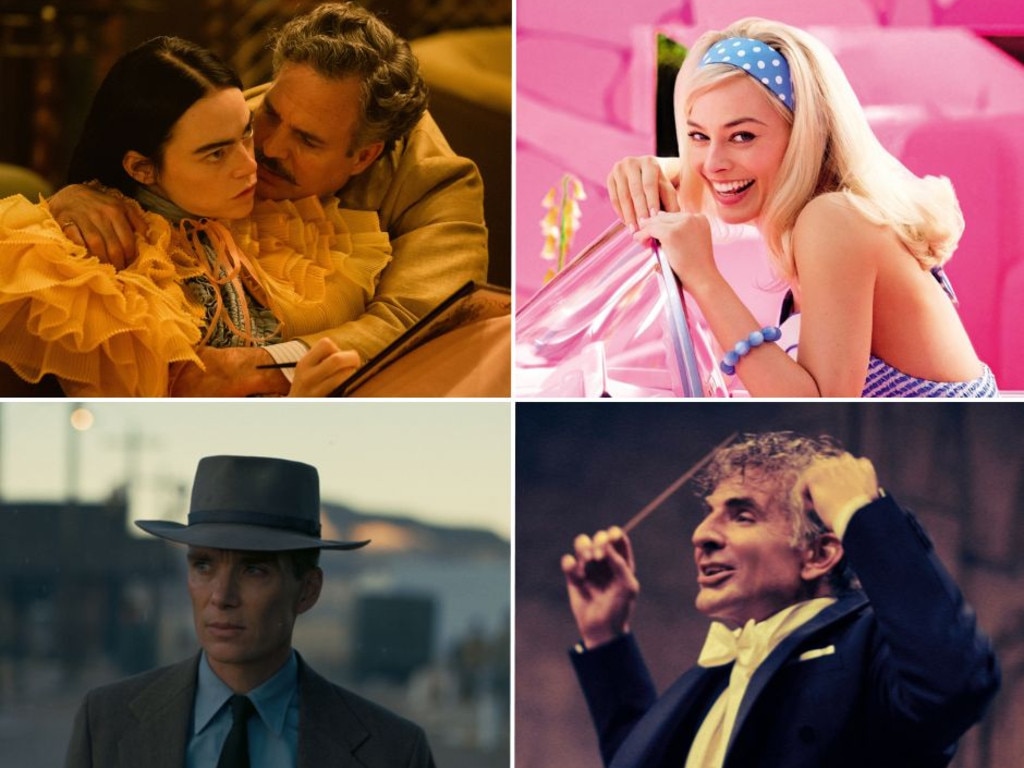George Clooney, Joel Edgerton discuss rowing film The Boys in the Boat
Director George Clooney, along with stars Callum Turner and Joel Edgerton, discuss their new feel-good film and the return of the mid-budget movie | WATCH
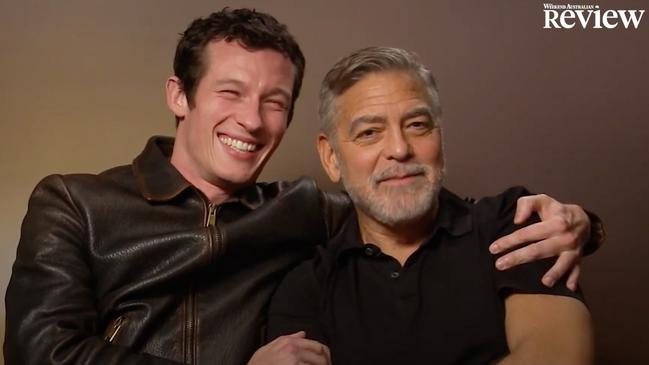
If you ever want to feel positively Lilliputian, there’s no place quite like a film premiere attended almost exclusively by professional rowers. Rowing Australia hosted a special screening in Sydney for actor-director George Clooney’s sports drama, The Boys in the Boat, adapted from Daniel Brown’s nonfiction bestseller about the University of Washington rowing team who won gold in the Men’s Eight at the 1936 Berlin Olympic Games.
The towering figures of rowers are enough to make even George Clooney feel diminutive in stature, the star jokes over Zoom from London as he tells Review about the time he visited a training session to recruit extras for the film.
“I took a picture with the Oxford Rowing team, and when I saw it later, I was like, ‘Who’s that little guy?’” he says with a laugh. “It was me.”
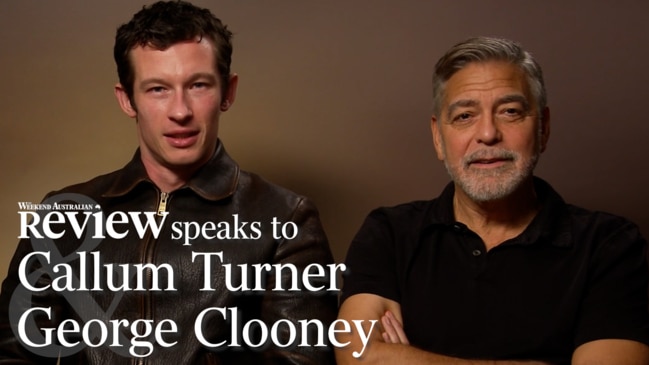
After reading so much about Clooney’s charisma one expects to be immune to his charms but this is certainly not the case – he is utterly magnetic. At 62 he looks, at the most, to be in his late 40s – he’s toned, tanned and completely relaxed in an unbuttoned black polo shirt, blue stonewash jeans, and a steel Omega Seamaster watch, with which he habitually fiddles.
This is Clooney’s ninth film as a director and the second period-piece sports film he has made, following the 2008 jazz-age football comedy Leatherheads. Sitting alongside the film’s star Callum Turner, who plays the film’s main character, he admits he doesn’t set out to make period pieces although he did grow up watching “old-fashioned dramas”.
“It’s just how it’s ended up,” he says with a sweet sigh. “I like those kinds of old stories and period pieces. I think it’s just maybe because I’m old. I’m up here.”
Set during the Depression, the film tells the story of a crew of nine working-class lads who, under the tutelage of their coach Al Ulbrickson (Joel Edgerton), muscle their way to victory over Ivy League snobs and wind up competing in the Olympics. It’s a classic underdog story that packs on the nostalgia and feels almost quaint in its earnest belief in values such as diligence, resilience and teamwork.
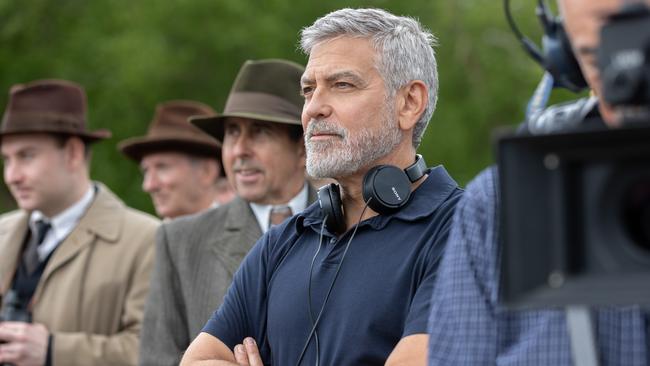
“It’s kind of like an old-fashioned war film,” Clooney says. “There’s the camaraderie of all these young men getting together and having to find their own way, knowing that they can’t make it individually.”
It’s also achingly romantic, brimming with lines of dialogue such as, “Let’s go find somewhere quiet” and rhapsodic train station kisses reminiscent of David Lean’s 1945 drama Brief Encounter. “I love the love story because it’s a true story,” Clooney says, his pitch shifting ever-so-slightly upwards. He is referring to the film’s central romance between Joe Rantz and Joyce Simdars, who knew each other in childhood, reconnect in college, and go on to marry and have five children. “They stayed married for 57 years! I wanted it to feel old-fashioned. I wanted the feel of an old 50s movie,” he says.
Clooney looks at Turner.“Do you remember how we were talking about how you had to kiss differently? You had to give the old 1950s kind of kiss – The Hollywood kiss.”
Clooney had read Brown’s book around a decade ago but never thought he’d get the chance to direct a film adaptation of the story.
“It was a massive bestseller and was around for a long time and in a lot of different people’s hands,” he says. “Then we got a great screenplay for it and I thought, well, let’s give it a go.”
Most of the drama in this film takes place on the water, which, Clooney admits, was hard to make look exciting. “It’s not like a basketball game, where it’s the last shot with 10 seconds left to go. It’s a different kind of sporting film.”
Before shooting the film, the cast endured several weeks of gruelling training, including mandatory weight and cardio sessions twice a day and rowing practise on the River Thames in England. “With this film, you have to be incredibly physically adept; you have to be super strong. This is not something you can fake,” Clooney says. “The actors had to be willing to get in and train.”
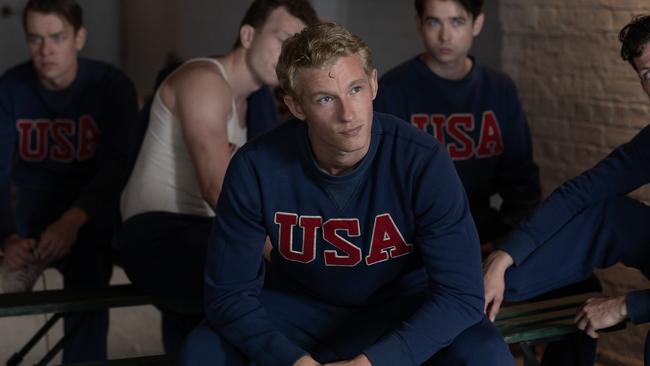
The training regimen swallowed most of the film’s budget. Clooney told Forbes (magazine) that heand his co-producer Grant Heslov were on the line for any overages and that, as a result, “they made me give back my salary as a director” (but, he said, the film came in under budget in the end so his salary was returned).
The film’s beating heart is Turner’s Joe Rantz, an impoverished engineering student abandoned at 14 by his father – who went to start a new family – and left to fend for himself.
Joe, who is behind on tuition and squatting in a miserable burnt-out car, only joins the college rowing program because he is promised a job and a room should he make the team.
Turner grew up on a council estate in Chelsea, London, as the only child of a single mother. He had dreams of becoming a professional footballer. He says there were “loads of things” that were relatable about Joe’s story.
“What’s interesting about my childhood is that I grew up in probably the richest part of the world, in a council estate,” he says, flashing his characteristic grin. “There were three estates in a row. I lived in The Guinness Trust, and across the street were these houses that were £10-£20m. That’s what I love about London. It’s this melting pot.”
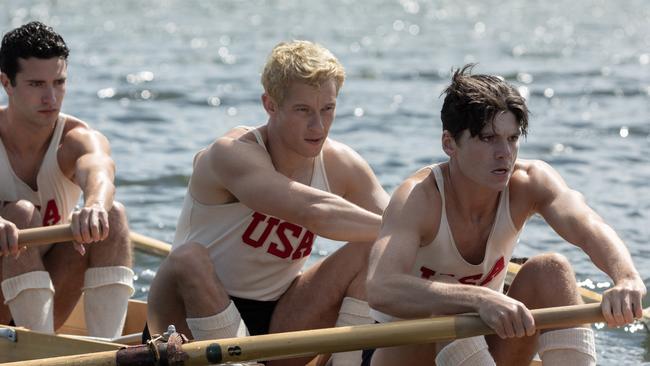
The actor says his upbringing allowed him to tap into the emotional truth of Joe.
“I loved his heart, and I loved his soul. I felt very strongly towards him,” he says. “What he did with his life was so special.”
When I ask Clooney what convinced him that Turner was the right actor for the role, he leans forward and adopts a deadpan manner. “He was the cheapest actor I could find, quite honestly …” “I paid him to do it,” Turner interjects with a good-natured nudge.
“Here’s the thing about Callum,” Clooney continues, “he has been around for a few years and has been in some really wonderful films. He’s the guy that everybody is watching and waiting to break.”
Turner, 33, has been a mainstay on British television for more thana decade, with roles in hit shows such as War & Peace, The Capture, and Leaving. He also starred alongside Eddie Redmayne in the Harry Potter spin-off franchise Fantastic Beasts, but, as Clooney says, “there needs to be that role for him” that propels him to Hollywood superstardom.
“I’ve had it in my career too.” At this point, Turner wraps his arm around Clooney and pulls him in for a cuddle.
In the film, the Washington team is coached by the steely, quietly fatherly Al Ulbrickson, played by Australian actor Joel Edgerton.
“I think Joel is one of the greatest actors around,” says Turner. “He just brings a fascinating gravitas to everything.”
Clooney agrees: “He’s just one of those actors … He’s a filmmaker too; he knows how to tell a story. As a director directing him, he’s a pro – he’s one of those actors that you don’t have to baby through a scene. He delivers every time.
“But also, he’s just a great cat, man. I love that guy. He’s fun to be around. You [Australia] have every right to be proud of him.”
When Review meets Edgerton a few days later at the Park Hyatt hotel in Sydney he says it was “easy” working under the direction of Clooney. “I always worry working with an actor-turned-director that they’re basically going to tell you how to act. There was none of that,” he says with a gruff laugh.
The 49-year-old says The Boys in the Boat is one of the most feel-good films in which he has acted. “I wonder what the appeal would have been for me, like five years ago, before I had my kids,” says Edgerton, who in 2021 became a father to fraternal twins, a boy and a girl, with partner Christine Centenera, editor of Vogue Australia.
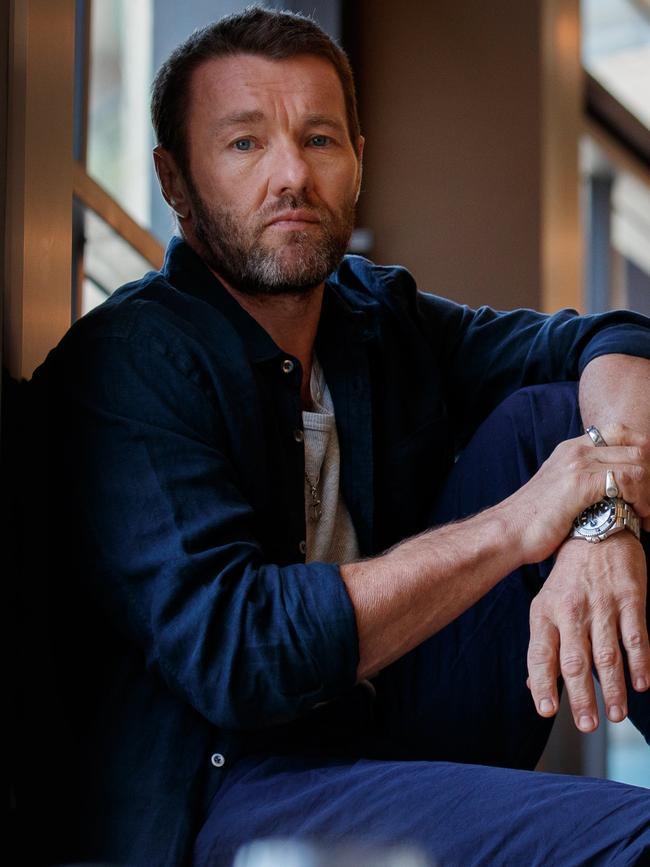
“The moment I became a dad, I started reading things differently, leaning into different types of stories and characters. I found myself getting very into stuff about fathers and kids.”
Edgerton sees coaches as “slightly unavailable father figures, people you want to impress that are actually warm underneath the surface, but they don’t appear so.” He finds himself “easily triggered by these kinds of stories”.
“I get emotionally involved in them in a nice way, or I get very upset about certain things that I see and read. Underdog stories really get to me. I think that I think everybody relates to them. I think we all walk around thinking we’re underdogs.”
There’s a potent nostalgia in the way The Boys in the Boat throws back to the kind of mid-budget, middlebrow adult dramas that were once so commonplace in the ’90s and ’80s but have since become passé.
“I think the movie business has pushed a lot of movies out of the cinema,” Edgerton observes. “It’s tough. You know, Marvel exists, big action movies exist, but that’s franchise stuff. Then you’ve got all the little independent movies that go on to the smallest cinemas.
“There’s not a lot of mid-budget movies that find their way to the cinema. I’m really happy that this movie is going to show at the cinema.
“It’s important that cinema stays alive. One way of celebrating it is to show films in front of people, have conversations, and go to festivals, rather than just have them slide under the door of a streamer.”
The Boys in the Boat is in cinemas now.



